
Guy Stuart Ritchie is an English film director, producer and screenwriter. His work includes British gangster films, and the Sherlock Holmes films starring Robert Downey Jr.

Father Brown is a fictional Roman Catholic priest and amateur detective. He features in 53 short stories by English author G. K. Chesterton, published between 1910 and 1936. Father Brown solves mysteries and crimes using his intuition and keen understanding of human nature. Chesterton loosely based him on the Rt Rev. Msgr John O'Connor (1870–1952), a parish priest in Bradford, who was involved in Chesterton's conversion to Catholicism in 1922.

Catwoman is a 2004 American superhero film loosely based on the DC Comics character Catwoman. It was directed by Pitof and written by John Rogers, John Brancato and Michael Ferris from a story by Theresa Rebeck, Brancato and Ferris, with music by Klaus Badelt. The film stars Halle Berry as Catwoman, plus Benjamin Bratt, Lambert Wilson, Frances Conroy, Alex Borstein, and Sharon Stone in supporting roles. The film centers on Patience Phillips, a meek designer who discovers a conspiracy within the cosmetics company she works for that involves a dangerous product that could cause widespread health problems. After being discovered and murdered by the conspirators, she is revived by Egyptian cats that grant her superhuman cat-like abilities, allowing her to become the crime-fighting superheroine Catwoman, while also romancing a detective who pursues her.

Beacon Hill is a historic neighborhood in Boston, Massachusetts, and the hill upon which the Massachusetts State House resides. The term "Beacon Hill" is used locally as a metonym to refer to the state government or the legislature itself, much like Washington, D.C.'s Capitol Hill does at the federal level.
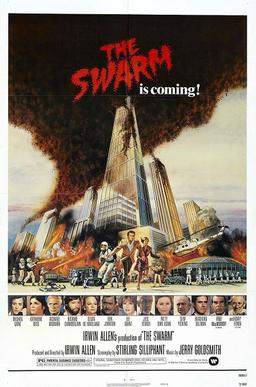
The Swarm is a 1978 American natural horror film directed and produced by Irwin Allen, and based on Arthur Herzog's 1974 novel. It stars an ensemble cast, including Michael Caine, Katharine Ross, Richard Widmark, Richard Chamberlain, Olivia de Havilland, Ben Johnson, Lee Grant, José Ferrer, Patty Duke, Slim Pickens, Bradford Dillman, Henry Fonda and Fred MacMurray in his final film role. It follows a scientist and a military task force who try to prevent a large swarm of killer bees from invading Texas. The film received overwhelmingly negative reviews from critics and was a box-office bomb. It has been considered to be one of the worst films ever made. Despite this, Paul Zastupnevich was nominated for the Academy Award for Best Costume Design.

Kidnapped (1938) is an adventure film directed by Otto Preminger and Alfred L. Werker, starring Warner Baxter and Freddie Bartholomew, and based on the 1886 novel Kidnapped by Robert Louis Stevenson.

Desperate Hours is a 1990 American neo-noir action thriller film, and a remake of the 1955 William Wyler crime drama of the same title. Both films are based on the 1954 novel by Joseph Hayes, who also co-wrote the script for this film with Lawrence Konner and Mark Rosenthal. Desperate Hours stars Mickey Rourke, Anthony Hopkins, Mimi Rogers, Kelly Lynch, Lindsay Crouse, Elias Koteas and David Morse. It is directed by Michael Cimino, who had previously worked with Rourke on the films Heaven's Gate and Year of the Dragon.
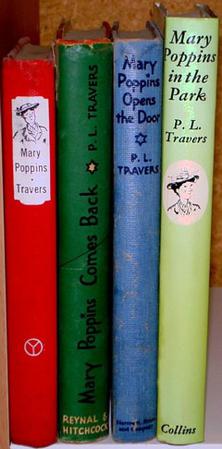
Mary Poppins is a series of eight children's books written by Australian-British writer P. L. Travers and published over the period 1934 to 1988. Mary Shepard was the illustrator throughout the series.

Countdown is a 1967 science fiction film directed by Robert Altman, based on the 1964 novel The Pilgrim Project by Hank Searls. Made before M*A*S*H, the film was subject to re-editing by the studio. Countdown stars James Caan and Robert Duvall as astronauts vying to be the first American to walk on the Moon as part of a crash program to beat the Soviet Union.

The Ballad of the White Horse is a poem by G. K. Chesterton about the idealised exploits of the Saxon King Alfred the Great, published in 1911. Written in ballad form, the work has been described as one of the last great traditional epic poems ever written in the English language. The poem narrates how Alfred was able to defeat the invading Danes at the Battle of Ethandun with the aid of the Virgin Mary.

Sherlock Holmes Faces Death is the sixth film in the Basil Rathbone/Nigel Bruce series of Sherlock Holmes films. Made in 1943, it is a loose adaptation of Sir Arthur Conan Doyle's Holmes 1893 story "The Adventure of the Musgrave Ritual." Its three immediate predecessors in the film series were World War II spy adventures with Holmes and Dr. Watson assisting working to thwart enemy agents, but this one marked a return to the pure mystery film form. Though several characters are military men and there are frequent mentions of the ongoing war, it is not the focus of the story.

New Moon is a 1940 American musical film released by Metro-Goldwyn-Mayer and directed by Robert Z. Leonard, with uncredited direction by W. S. Van Dyke.

Fool's Gold is a 2008 American romantic action comedy film from Warner Bros. Pictures about a recently divorced couple who rekindle their romantic life while searching for a lost treasure. The film is directed by Andy Tennant and reunites the How to Lose a Guy in 10 Days stars Matthew McConaughey and Kate Hudson. It received negative reviews from critics and grossed $111 million worldwide.
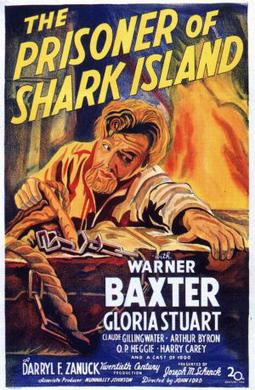
The Prisoner of Shark Island is a 1936 American drama film loosely based on the life of Maryland physician Samuel Mudd, who treated the injured presidential assassin John Wilkes Booth and later spent time in prison after his controversial conviction for being one of Booth's accomplices. The film was produced by Darryl F. Zanuck, was directed by John Ford and starred Warner Baxter and Gloria Stuart.

Life with Father is a 1947 Technicolor American comedy film adapted from the 1939 play of the same name, which was inspired by the autobiography of stockbroker and The New Yorker essayist Clarence Day.
The Razzie Award for Worst Screen Combo is an award presented at the annual Golden Raspberry Awards to the worst movie pairing or cast of the past year. The following is a list of nominees and recipients of the awards, along with the film(s) for which they were nominated.
The Razzie Award for Worst Remake, Rip-off or Sequel is an award presented at the annual Golden Raspberry Awards for the worst film adapted from some form of previous material. The category covers films that are prequels, sequels, remakes, reboots, spin-offs, film adaptations of other media franchises, mockbusters and "rip-offs".
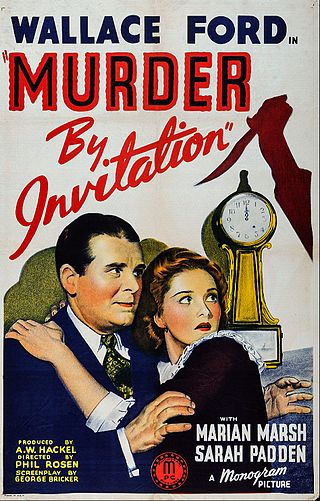
Murder by Invitation is a 1941 American mystery film directed by Phil Rosen and starring Wallace Ford.
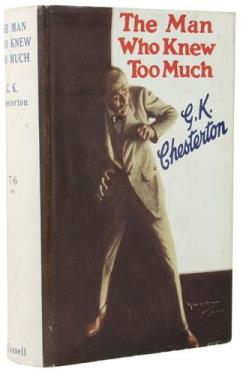
The Man Who Knew Too Much: And Other Stories (1922) is a book of detective stories by English writer G. K. Chesterton, published in 1922 by Cassell and Company in the United Kingdom, and Harper Brothers in the United States. It contains eight connected short stories about "The Man Who Knew Too Much", and unconnected stories featuring other heroes/detectives. The United States edition contains one of these additional stories: "The Trees of Pride", while the United Kingdom edition contains "Trees of Pride" and three shorter stories: "The Garden of Smoke", "The Five of Swords" and "The Tower of Treason".
The 22nd Stinkers Bad Movie Awards were released by the Hastings Bad Cinema Society in 2000 to honour the worst films the film industry had to offer in 1999. Founder Ray Wright listed Pokemon: The First Movie among his five worst movies of the 1990s alongside Batman and Robin, It's Pat, Crash, and Nothing but Trouble. Listed as follows are the different categories with their respective winners and nominees, including Worst Picture and its dishonourable mentions, which are films that were considered for Worst Picture but ultimately failed to make the final ballot. All winners are highlighted.

















